- Home
- Ganesh Chaturthi Home
Ganesh Chaturthi Festival Guide
When: August 25, 2017
This spectacular festival honors the birth of the beloved Hindu elephant-headed god, Lord Ganesha, popularly worshiped for his ability to remove obstacles and bring good fortune.
When is Ganesh Chaturthi?
Late August or early September, depending on the cycle of the moon. It falls on the fourth day after new moon in the Hindu month of Bhadrapada. In 2016, Ganesh Chaturthi is on September 05. It is celebrated for 11 days (ending on September 15), with the biggest spectacle taking place on the last day called Anant Chaturdasi day.
Where is it Celebrated?
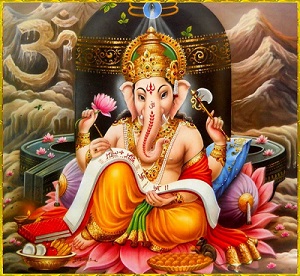
Mostly in the states of Maharashtra, Goa, Tamil Nadu, Karnataka and Andhra Pradesh. One of the best places to experience the festival is in the city of Mumbai. Celebrations take place in a special way at the towering Siddhivinayak temple, located in the central suburb of Prabhadevi, which is dedicated to Lord Ganesha. An incalculable number of devotees visit the temple to join in prayers and pay their respects to the God during the festival. In addition, around 10,000 statues of Lord Ganesh are displayed at various locations in the city.
How is it Celebrated?
The festival begins with the installation of huge elaborately crafted statutes of Ganesha in homes and podiums, which have been especially constructed and beautifully decorated. Artisans put months of effort into making the statues. It's forbidden to look at the moon on this first night as legend had it the moon laughed at Lord Ganesha when he fell from his vehicle, the rat.
On Ananta Chaturdasi (the last day), the statues are paraded through the streets, accompanied by much singing and dancing, and then immersed in the ocean or other bodies of water. In Mumbai alone, more than 150,000 statues are immersed each year!
What Rituals are Performed?
Once a statue of Lord Ganesh is installed, a ceremony is undertaken to invoke his holy presence into the statue. This ritual is called the Pranapratishhtha Puja, during which a number of mantras are recited. Following this a special worship is performed. Offerings of sweets, flowers, rice, coconut, jaggery and coins are made to the God. The statue is also anointed with red chandan powder. Prayers are offered to Lord Ganesha every day during the festival. Temples devoted to Lord Ganesha also organize special events and prayers. Those who have a Ganesha statue in their house treat and care for him as a much loved guest.
Why are the Ganesh Statues Immersed in Water at the End of the Festival?
Hindus worship idols, or statues, of their gods because it gives them a visible form to pray to. They also recognize that the universe is in a constant state of change. Form eventually gives away to formlessness. However, the energy still remains. The immersion of the statues in the ocean, or other bodies of water, and subsequent destruction of them serves as a reminder of this belief.
What to Expect During the Festival
The festival is celebrated in a very public manner. Local communities compete with each other to put up the biggest and best Ganesha statue and display. Expect very crowded streets, filled with boisterous devotees, and lots of music.
108 Names of Ganesha
Lord Ganesha is known by many names. There exists 108 different names of Ganesha in the Hindu scriptures. Many of these are suitable for baby names - for both boys and girls. The following are these various Sanskrit names of Ganesha with their meaning.
1. Akhuratha: One whose chariot is pulled by a mouse
2. Alampata: One who is forever eternal
3. Amit: One who is incomparable
4. Anantachidrupamayam: One who is the personification of the infinite consciousness
5. Avaneesh: Master of the universe
6. Avighna: The remover of obstacles
7. Balaganapati: Beloved child
8. Bhalchandra: One who is moon crested
9. Bheema: One who is gigantic
10. Bhupati: The lord of lords
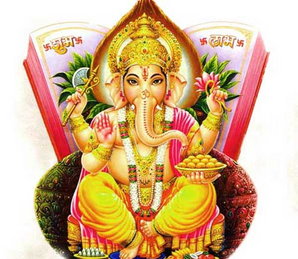
11. Bhuvanpati: The lord of the heaven
12. Buddhinath: The God of wisdom
13. Buddhipriya: One who bestows of knowledge and intellect
14. Buddhividhata: The God of knowledge
15. Chaturbhuj: The four-armed lord
16. Devadeva: The lord of lords
17. Devantakanashakarin: Destroyer of evils and demons
18. Devavrata: One who accepts all penances
19. Devendrashika: The protector of all gods
20. Dharmik: One who is righteous and charitable
21. Dhoomravarna: One whose skin is smoke-hued
22. Durja: The invincible
23. Dvaimatura: One who has two mothers
24. Ekaakshara: One who is of a single syllable
25. Ekadanta: Single-tusked
26. Ekadrishta: Single-focused
27. Eshanputra: The son of Shiva
28. Gadadhara: One whose weapon is the mace
29. Gajakarna: One who has elephantine-ears
30. Gajanana: One who has an elephantine face
31. Gajananeti: One who has the looks of an elephant
32. Gajavakra: The trunk of an elephant
33. Gajavaktra: One who has an elephantine mouth
34. Ganadhakshya: The lord of lords
35. Ganadhyakshina: Leader of all celestial bodies
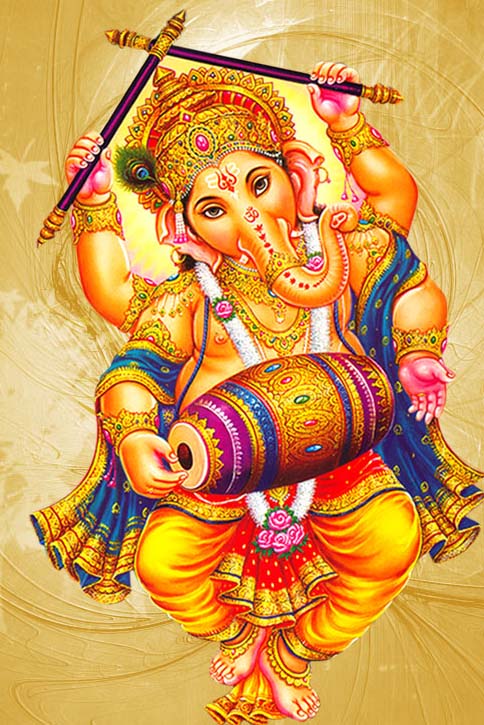
36. Ganapati: The lord of lords
37. Gaurisuta: The son of Gauri
38. Gunina: The lord of virtues
39. Haridra: One who is golden-hued
40. Heramba: Mother's beloved son
41. Kapila: One who is yellowish-brown
42. Kaveesha: The lord of poets
43. Kirti: The lord of music
44. Kripalu: Merciful lord
45. Krishapingaksha: One who has yellowish-brown eyes
46. Kshamakaram: The abode of forgiveness
47. Kshipra: One who is easy to appease
48. Lambakarna: One who has large ears
49. Lambodara: One who has a big belly
50. Mahabala: One who is enormously strong
51. Mahaganapati: The Supreme Lord
52. Maheshwaram: Lord of the universe
53. Mangalamurti: The all auspicious Lord
54. Manomay: The winner of hearts
55. Mrityuanjaya: The conqueror of death
56. Mundakarama: The abode of happiness
57. Muktidaya: Bestower of eternal bliss
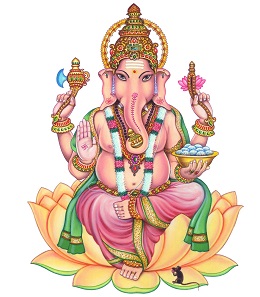
58. Musikvahana: One who rides a mouse
59. Nadapratithishta: One who appreciates music
60. Namasthetu: Destroyer of evils and sins
61. Nandana: Lord Shiva's son
62. Nideeshwaram: Bestower of wealth
63. Omkara: One who has the form of 'Om'
64. Pitambara: One who has yellowish skin
65. Pramoda: Lord of all abodes
66. Prathameshwara: First among all Gods
67. Purush: The omnipotent personality
68. Rakta: One who is blood-hued
69. Rudrapriya: One who is the beloved of Shiva
70. Sarvadevatman: One who accepts all celestial offerings
71. Sarvasiddhanta: Bestower of skills and knowledge
72. Sarvatman: Protector of the universe
73. Shambhavi: Son of Parvati
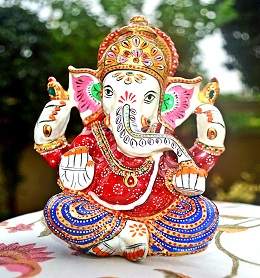
74. Shashivarnam: One who has a moon-like complexion
75. Shoorpakarna: One who is large-eared
76. Shuban: The all auspicious Lord
77. Shubhagunakanan: One who is The Master of All Virtues
78. Shweta: One who is as pure as the white
79. Siddhidhata: Bestower of accomplishments and successes
80. Siddhipriya: Giver of wishes and boons
81. Siddhivinayaka: Bestower of success
82. Skandapurvaja: Elder of Skanda or Kartikya
83. Sumukha: One who has an auspicious face
84. Sureshwaram: The lord of lords
85. Swaroop: Lover of beauty
86. Tarun: One who is ageless
87. Uddanda: The nemesis of evils and vices
88. Umaputra: The son of Goddess Uma
89. Vakratunda: One with a curved trunk
90. Varaganapati: Bestower of boons
91. Varaprada: One who grants wishes
92. Varadavinayaka: Bestower of success
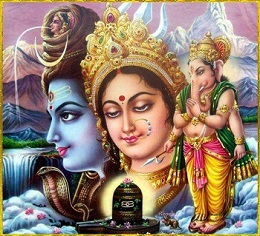
93. Veeraganapati: The vigorous lord
94. Vidyavaridhi: The God of wisdom
95. Vighnahara: Remover of obstacles
96. Vignaharta: Destroyer of all obstacles
97. Vighnaraja: Lord of all obstacles
98. Vighnarajendra: Lord of all obstacles
99. Vighnavinashanaya: Destroyer of all obstacles
100. Vigneshwara: Lord of all obstacles
101. Vikat: One who is huge
102. Vinayaka: The Supreme Lord
103. Vishwamukha: Master of the universe
104. Vishwaraja: King of the world
105. Yagnakaya: One who accepts sacrificial offerings
106. Yashaskaram: The bestower of fame and fortune
107. Yashvasin: The beloved and ever popular lord
108. Yogadhipa: The lord of meditation
Tags:- Facts about Independence Day of India, Interesting facts about India`s Independence Day, Independence Day Facts, 12 Most Interesting Facts about Independence Day, unknown facts india independence, independence day information.